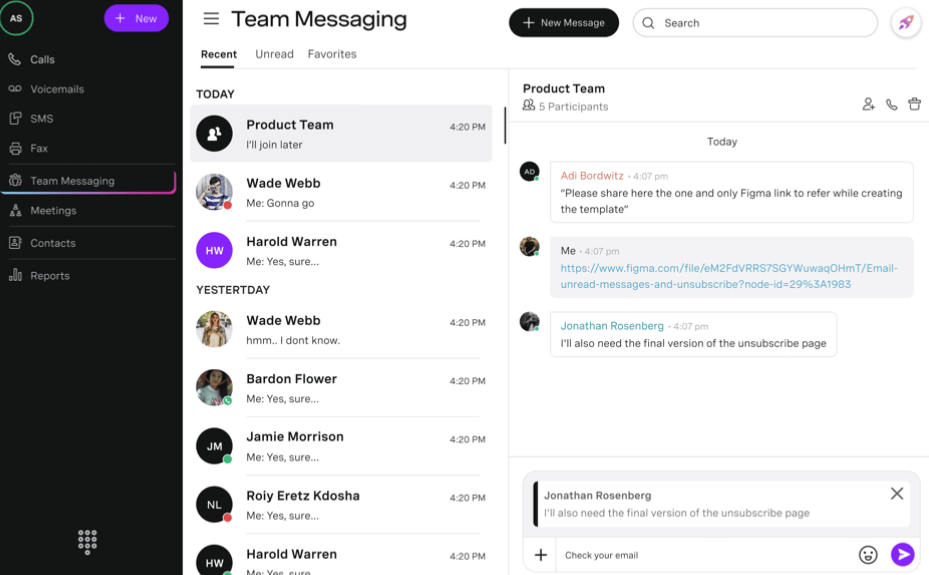Voice over Internet Protocol (VoIP) phones are communication devices that use the internet to transmit voice data, transforming traditional voice signals into digital data packets. Unlike conventional analog phones that use the public switched telephone network (PSTN), VoIP phones send and receive calls via the internet. This technology enables more features and flexibility at a lower cost compared to traditional telephony.
How VoIP Phones Work
- Digital Data Conversion: VoIP phones convert analog voice signals into digital data packets using codecs.
- Data Transmission: These packets are transmitted over the internet or other packet-switched networks to the destination.
- Signal Reception and Conversion: At the receiving end, the data packets are converted back into analog audio signals or are directly used in digital form if the receiving device supports it.
Types of VoIP Phones
- Hardware VoIP Phones: These resemble traditional phones but are designed to connect directly to a computer network rather than a phone line. They may include features like touch screens, support for multiple VoIP accounts, conferencing capabilities, and built-in Wi-Fi or Bluetooth.
- Software VoIP Phones (Softphones): These are software applications that run on a computing device (PC, smartphone, tablet) and use its hardware (microphone and speakers or headset) to offer VoIP communications. Softphones are flexible and can be used anywhere there is a suitable internet connection.
- Mobile VoIP Phones: Apps on smartphones that use the device's internet connection (via Wi-Fi or mobile data) to make and receive VoIP calls. These apps can run in the background and integrate with the device's contact list.
Advantages of VoIP Phones
- Cost Savings: VoIP can significantly reduce communication costs, especially for long-distance and international calls.
- Scalability: Adding new users or adjusting service plans is often simpler and cheaper than with traditional phone systems.
- Portability: Users can make and receive calls from anywhere with a stable internet connection, maintaining the same phone number.
- Advanced Features: VoIP systems often include advanced features like voicemail to email, call forwarding, auto-attendant, and video conferencing.
- Integration: Many VoIP systems can integrate with business applications and CRM systems, enhancing productivity and customer service.
Considerations and Challenges
- Dependence on Internet Connection: VoIP quality and reliability heavily depend on the internet connection's bandwidth and stability.
- Power and Internet Outages: Unlike analog phones, VoIP phones require power and an active internet connection, which can be an issue during outages.
- Latency and Jitter: These can affect call quality, leading to delays or choppy audio, although advances in technology and higher internet speeds have mitigated these issues significantly.
- Security: VoIP systems can be vulnerable to hacking, eavesdropping, and spam calls, necessitating robust security measures.
VOIP service providers
- RingCentral: A popular choice for businesses, RingCentral offers a comprehensive suite of VoIP services, including voice, fax, text, conferencing, and mobile communications.
- Vonage: Known for its residential and business VoIP services, Vonage provides adaptable plans with features like call forwarding, voicemail to email, and more.
- 8x8: This provider offers VoIP solutions for small to large businesses, emphasizing features like international calling, video conferencing, and integration with various business applications.
- Nextiva: Nextiva is favored for its reliability and customer service, offering VoIP phone services with advanced features like auto-attendant, CRM integration, and call analytics.
- Ooma: Offering services for both home and business users, Ooma is known for its easy setup and clear pricing, with features including caller ID, call blocking, and an online call log.
- Grasshopper: Grasshopper is geared towards small businesses and entrepreneurs, providing features like call forwarding, voicemail transcription, and virtual fax.
- Google Voice: A free service for personal use with a paid version for businesses (part of Google Workspace), Google Voice offers voicemail, text messaging, and call forwarding.

